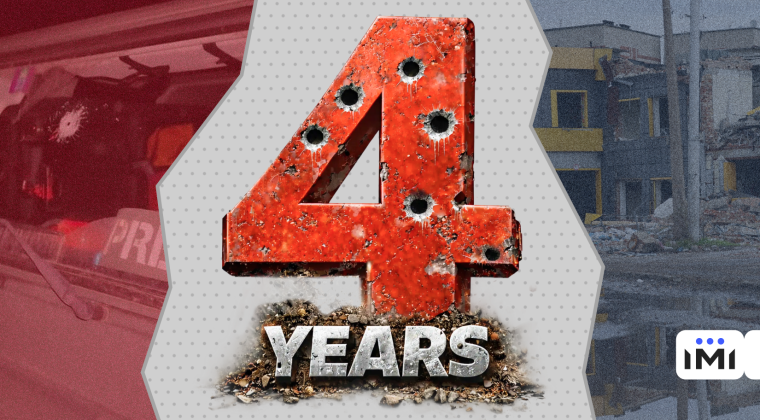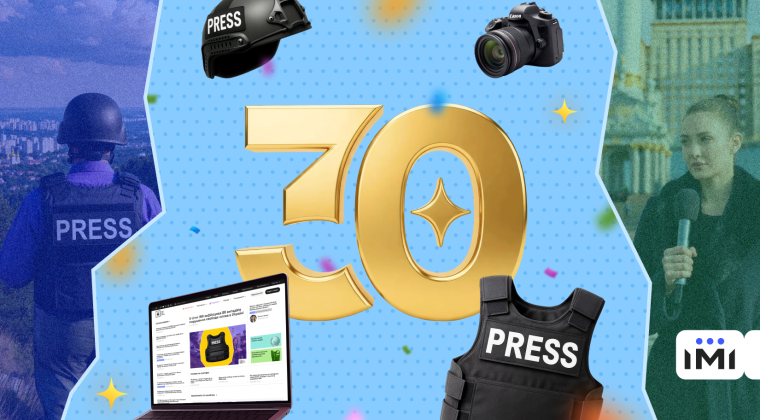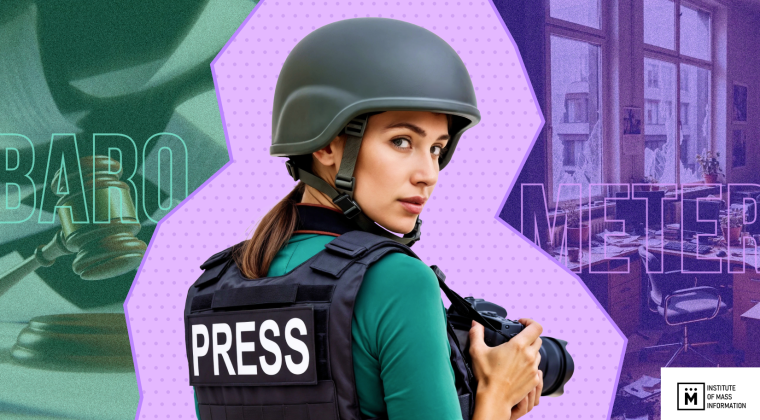The Institute of Mass Information’s (IMI) Mediabazas saw another busy month in May. Journalists trained to write investigations into reconstruction, analyzed the Law “On Media”, and discussed courtroom reporting. The Mediabazas hosted a total of 14 events which were attended by 252 people, with another 149 coming there to work outside the training classes. Read more about what support and knowledge the IMI Mediabazas offered to journalists in May.
On tenders: now in reconstruction business
Remember when Mediabaza Khmelnytskyi discussed the dubious schemes used by funds managers on Prozorro? This problem is also common in reconstruction business — though it has its own nuances, of course. Which is what Bihus.Info journalist Natalya Lazarevych spoke about at Mediabaza Kropyvnytskyi. Here are her tips.
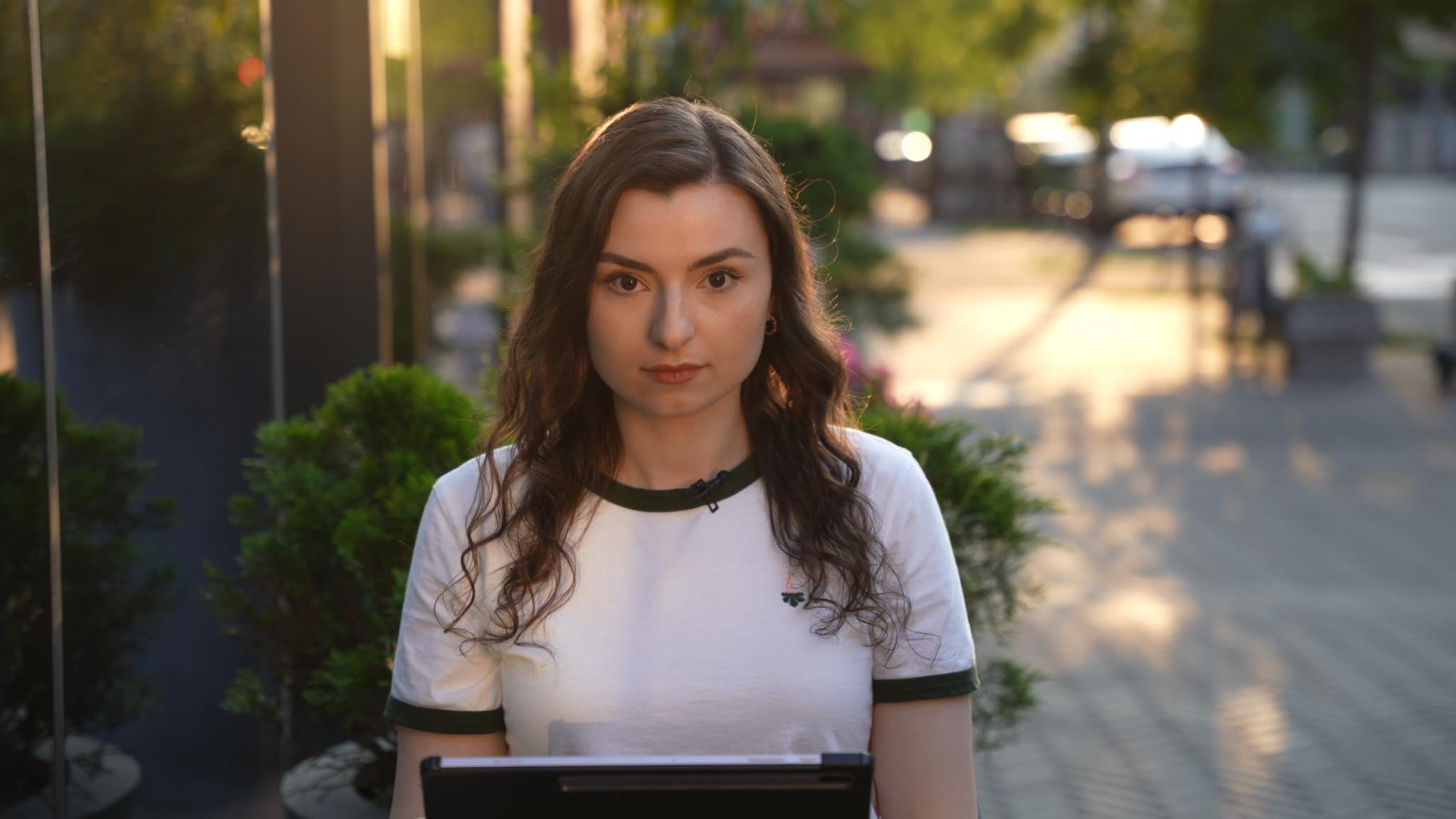
Natalya Lazarevych. Photo shared by Natalya Lazarevych
The following platforms are convenient for montioring tenders:
- prozorro.gov.ua — the digital public procurement system;
- bi.prozorro.org — a public procurement analytics module;
- spending.gov.ua — the unified public spending web portal;
- 007.org.ua — a search and analysis system for public spending;
- clarity-project.info — an analytics portal;
- Youcontrol — an analytics system;
- open data platforms and queries.
Irrational use of funds in reconstruction is somewhat similar to the abuses of office we discussed earlier. It includes refusals to hold public tenders, stalling with the construction work, purchasing overpriced materials, only performing work “on paper”. Here are a few ways to detect them:
- Analyze the tender documentation. A seemingly obvious point. But this includes not just requesting defect agreements or summary cost sheets. You can “dig” deeper: check the company’s previous experience, the list of staff.
- Use OSINT: social media, old photos, resumes.
- Communicate on the ground: if you have sources in the state bodies, get a comment from them, talk to the housing co-op head or the residents of the buildings.
- Use the AMCU blacklist. Sometimes the funds managers disregard it.
On trials: this time with advice
In April, the Mediabaza Khmelnytskyi team made practical attempts to improve communication with judges; in May, they partnered with Mediabaza Chernihiv to teach journalists to use this (at least partially) improved communication for high-quality reporting. Here are some tips from the training class:
Filming, taking photos, and recording audio is allowed if the hearing is open, i.e. in civil, administrative, and commercial law trials. An approval from the court is required for streaming or broadcasting.
In criminal law proceedings, no court approval is needed for audio recording and making transcripts. Photos, videos, and broadcasts are only allowed with the court’s permission.
The judge, defense attorney, and prosecutor cannot prohibit filming themselves as they perform a public function.
Observe presumption of innocence: do not refer to a person as guilty or imply it before the court ruling is issued. Instead you should say that the person was detained on charges. When using material that contains information from the indictment, court rulings, or statements by trial participants in your reporting, quote it in full and verbatim.
As per the current law, journalists can not communicate with the judge until a ruling is made in the case, since the court must remain impartial. This is what press offices and judges’ spokespeople are for.
The court may try a case in camera if it involves disclosing secrets protected by law (state, medical, legal, adoption secrets). If a case is tried in camera, the ruling can not be announced publically, either, as it may contain information about the secret.
Martial law is not a reason to exclude journalists and the public from the trial. To date, no significant amendments have been made to the law that specifically pertain to courtroom reporting during martial law. Journalists are entitled to free access to the court building, the courtrooms, and public hearings.
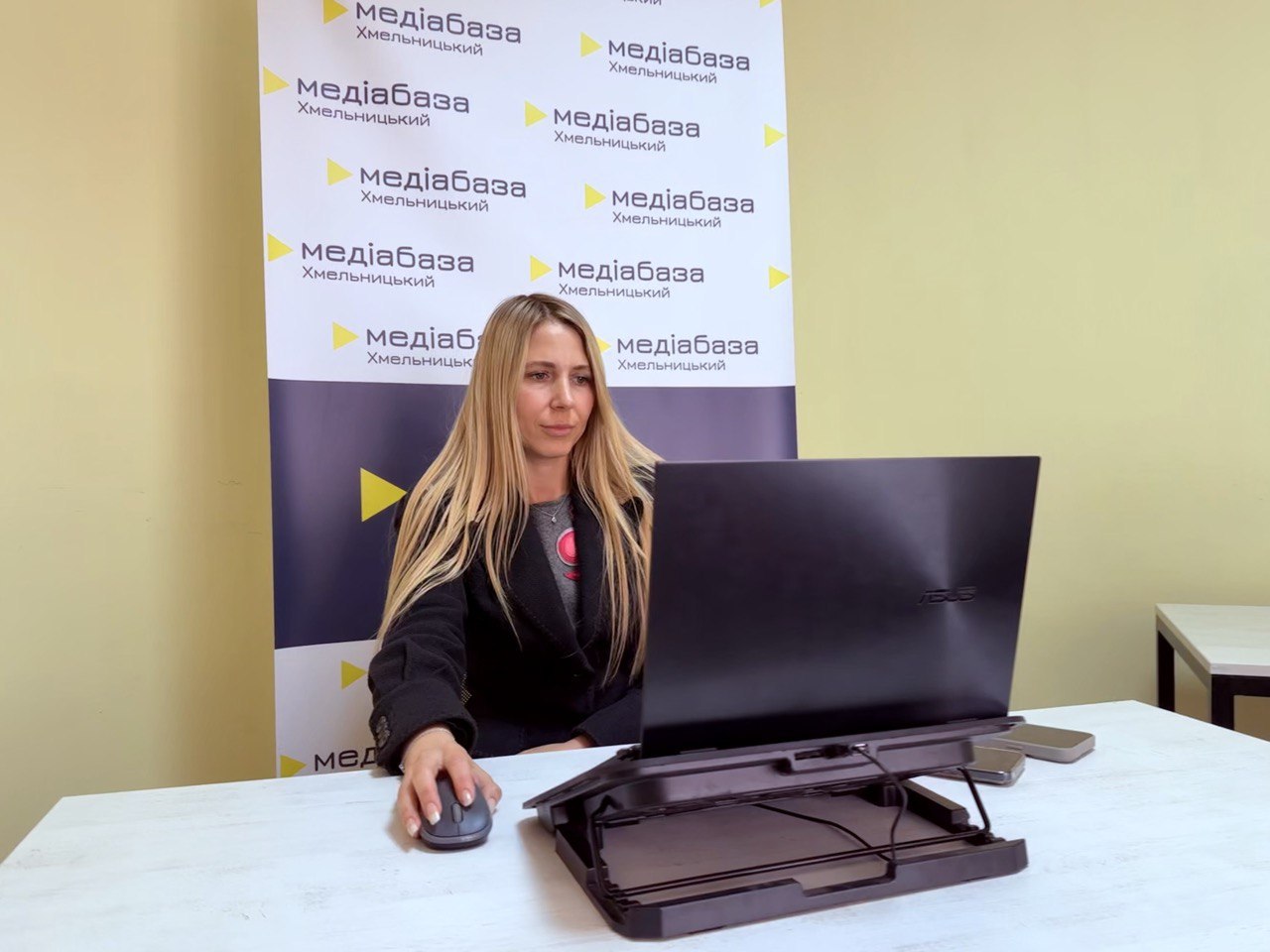
Mediabaza Khmelnytskyi manager Olha Zahoruyko during the online training class “Reporting on trials”. Photo by Maria Turchyna
When taking a comment from a lawyer or a prosecutor, you might find the advice by Mediabaza Chernihiv coach Oksana Rasulova helpful. She explains how to cover both the position of the defense and that of the prosecution in a balanced way:
- Do not ask general questions. Ask for the case materials in advance and study them in detail. Base your questions on this data.
- Use legal terms in communication even if they will have to be translated into “human” language for the story. Use neutral words: “your client”, “the accused”, “the defendant”.
- Ask for examples and clarifications.
- Be attentive to defense being active or passive. Declining to comment is also a position, and you will be able to add that this or that party refused to comment in your story.
- Explain to the defense lawyers your motivations behind the conversation.
- Attend hearings regularly so that people grow to trust you. Ideally, dress the same or similarly. This will help people remember you among other journalists.
Some more legislation: the Law “On Media” analyzed
Oleksandr Burmahin gave a training class on how to avoid fines and what advertisements are above and below board, hosted by Mediabaza Cherkasy.

Oleksandr Burmahin during an online meeting at Mediabaza Cherkasy. Photo by Anastasia Neboha
All breaches of this law are divided into three categories:
- Minor violations: breaches of legal requirements regarding the form and labeling of advertising; breaches of source citing requirements, etc.
- Severe violations: promoting statements that incite discrimination; disseminating pornographic materials; promoting drug use, etc.
- Gross violations: hate speech; calls for violent change or overthrow of Ukraine’s constitutional order; disseminating content that encourages sexual exploitation and violence against children; propaganda or calls for terrorism and terrorist acts, etc.
Now on to advertising.
Can you advertise fortune tellers and healers? No. The law bans advertising healing services to a mass audience in Ukraine. At the same time, advertising traditional medicine services and persons who offer them is allowed with the appropriate special permit (except for radio advertising). Advertising fortune telling services is prohibited.
Can you advertise tobacco products and alcoholic beverages? Tobacco, tobacco products, and electronic cigarettes — no. Alcohol — only on certain conditions. However, there are no such requirements for online media yet, so amendments to the Law “On Advertising” are planned for June–July.
Are gambling ads allowed? Again, only on certain conditions. IMI experts have explained in detail the amendments introduced from April 1. In short, gambling ads are allowed between 11:00 p.m. and 6:00 a.m. in media outlets dedicated to gambling and intended for persons over 21 years of age, as well as in registered media outlets intended for persons over 21 years of age.
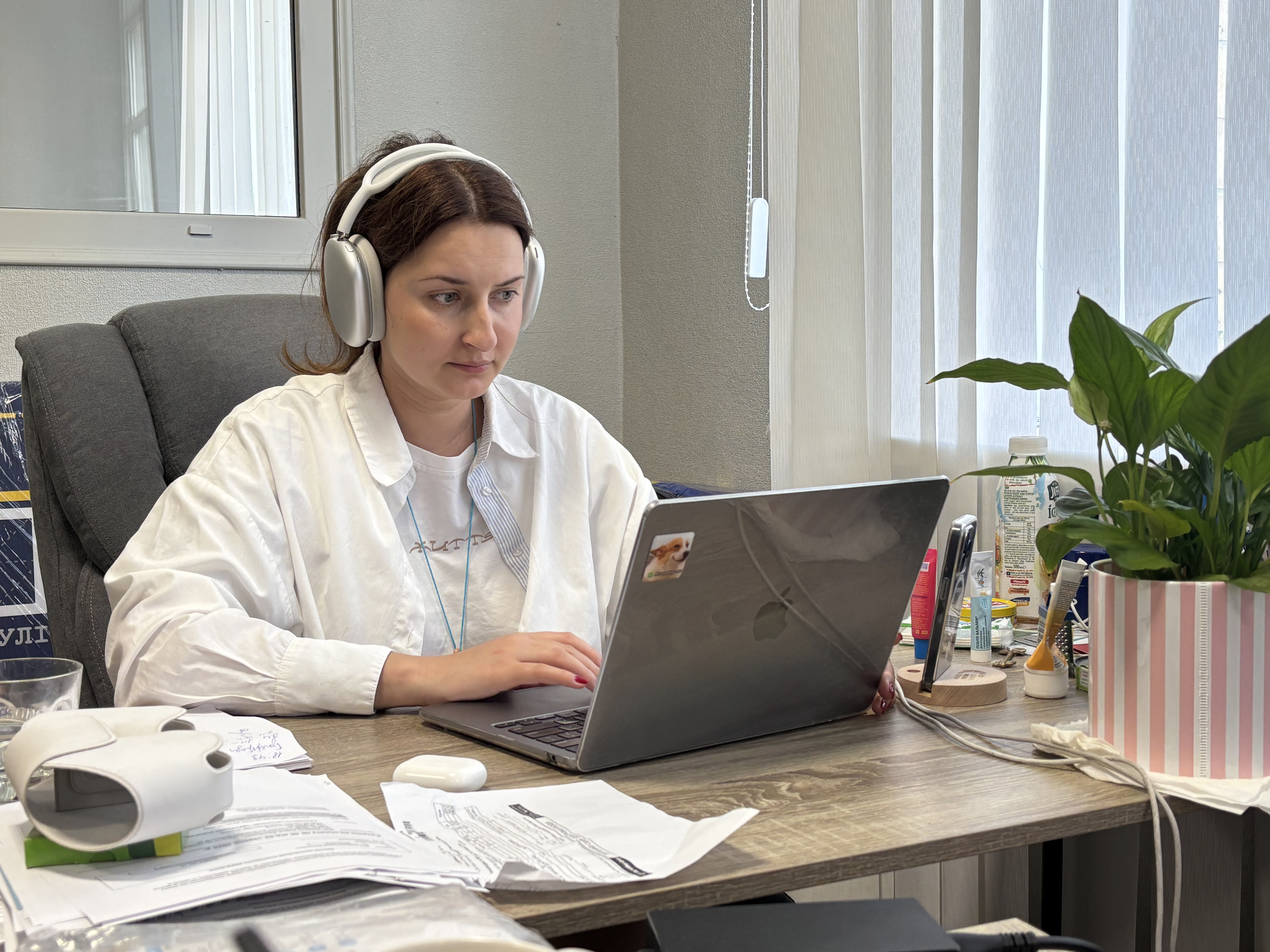
Online meeting with Oleksandr Burmahin at Mediabaza Cherkasy. Photo by Anastasia Neboha
Working with contractors: what it means for NGOs
Many journalists are involved in various NGOs on top of reporting. Moreover, some media outlets are registered as NGOs, which prompted Mediabaza Slovyansk to share some tips on what arrangements such organizations should make with contractors so as not to lose their non-profit status and not get fined. Here is some advice from fundraiser Taisia Harmash and accountant Maryna Kurakova:
- Create a reporting calendar and set up automatic reminders. Charge penalties for each day of delay and impose significant fines for untimely reporting. In a critical situation, the organization’s accounts may be blocked otherwise.
- Clearly articulate what the agreement is about: the result, not the process. Otherwise, you may receive a fine for requalifying a civil law contract into employment relations.
- Document all transactions and keep the documents for at least three years.
- Only spend the funds for statutory purposes.
- Regularly consult with lawyers and accountants.
Bonding with colleagues
The Mediabazas organize an informal event nearly every month for journalists to connect with one another. This helps to balance one’s mental health, share the painful things that only journalists from your city will understand, and work together to find solutions. This month, a meeting like that took place at Mediabaza Zaporizhzhia and involved journalism students at the Zaporizhzhia National University.
The discussion featured Suspilne Zaporizhzhia chief editor Alyona Natalukha, Ukrinform correspondent Olha Zvonaryova, and Lyudmyla Walter, psychologist at the volunteer center “Soldier’s Rest Spot”, who pointed out that there has been less reporting on war-related topics, in particular on life in the occupied territories. The news stories that are available increasingly feature more numbers than people’s stories.
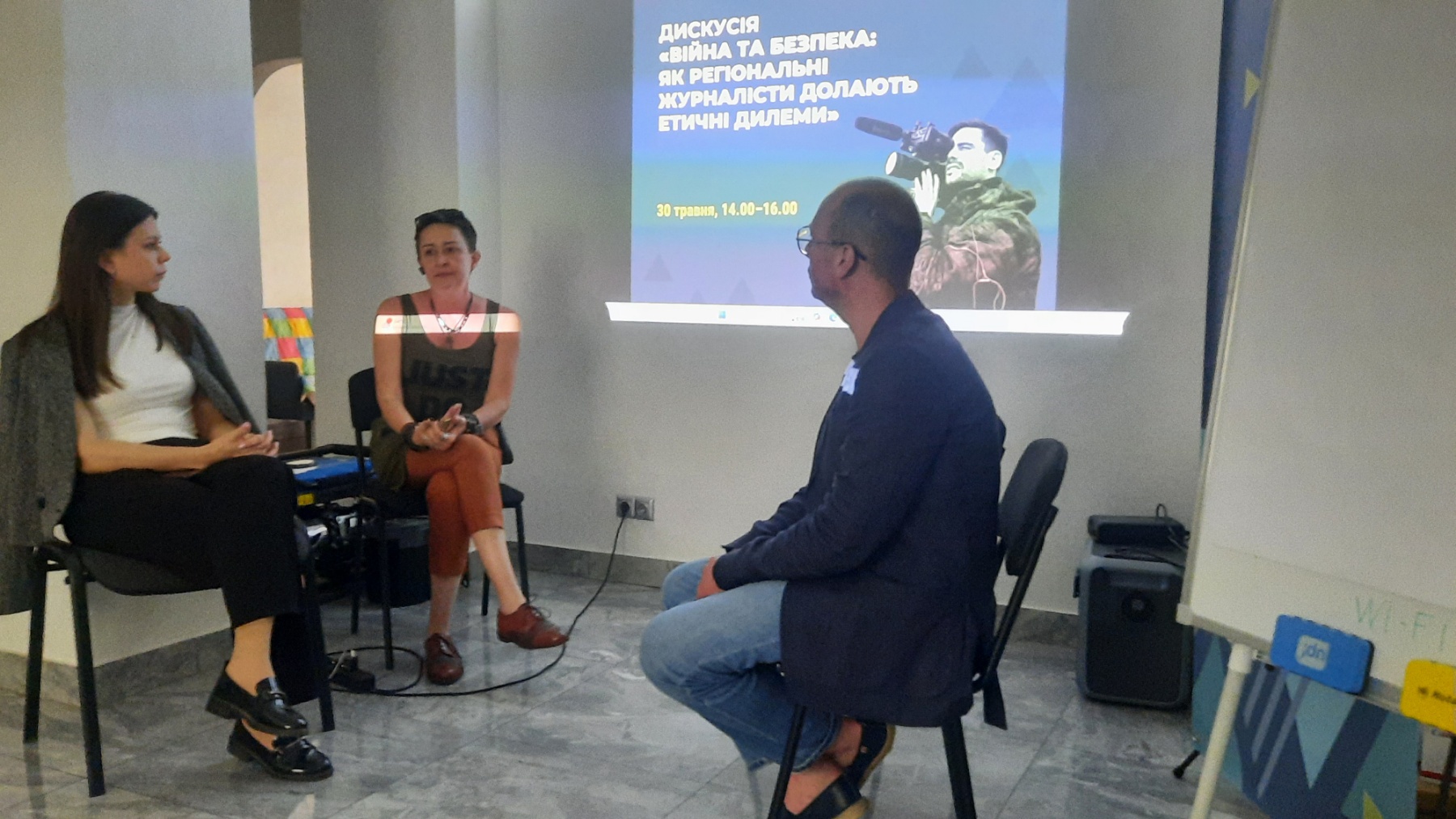
Discussion participants. Photo by the Zaporizhzhia National University
The speakers said that there are objective reasons for this: readers are tired of the war and want to see good news. Meanwhile reporting on the life on the TOT is becoming increasingly difficult: some informants have left, some faced repression by the occupation authorities and are afraid to share information. It has also become more difficult to report from battlefield positions and long news stories are growing less popular with readers. Still, editorial teams are trying to adapt to the audience’s demands and are looking for new formats.
Students say that such meetings are helpful to them. “I enjoyed it because it really brings us closer to professionals, you can be reading and watching their reporting and here you see these people in person and can talk with them. I liked that the theory that we learned in the 3rd year was confirmed by practical professional experience,” says Yelysey Pletin, a 3rd year student majoring in journalism.
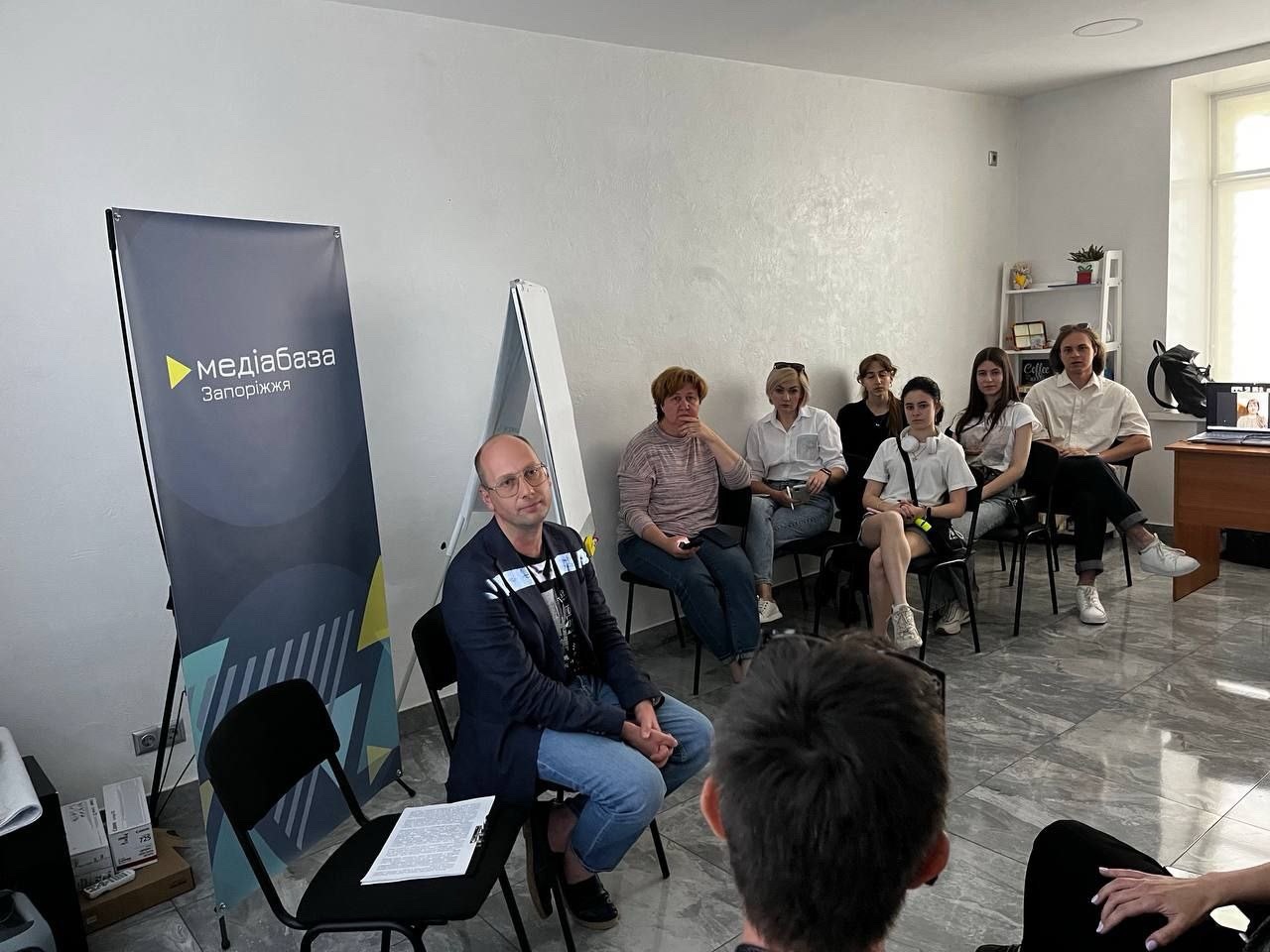
Guests at the discussion. Photo by the Zaporizhzhia National University
In May, the IMI Mediabazas continued to provide journalists with safety gear so that they can stay safe on reporting trips. Mediabaza Odesa/Kherson supplied a group of Slovenian journalists and volunteers traveling to Kherson oblast with bulletproof vests, helmets, and first aid kits.
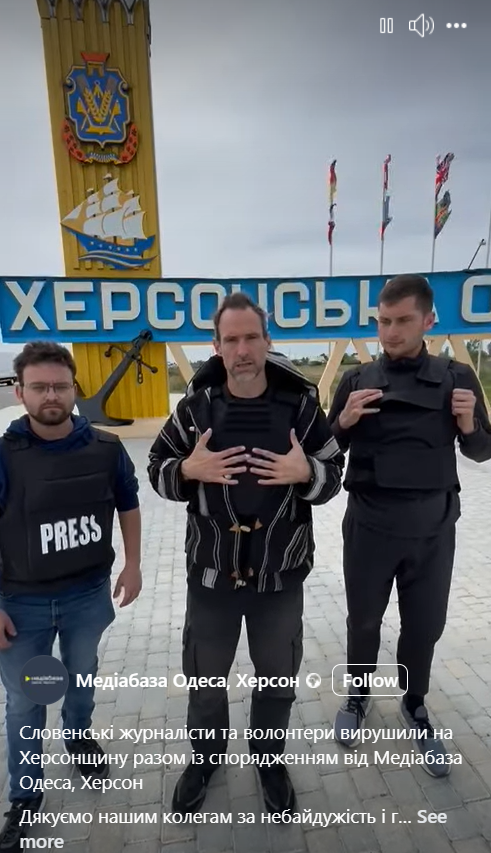
Slovenian journalists and volunteers. Screenshot from the Mediabaza Odesa/Kherson page by IMI
Cheline journalist Ira Ponomarenko traveled to the frontline wearing equipment from Mediabaza Chernihiv. The trip resulted in a valuable reportage about Chernihiv-born soldiers fighting in the Pokrovsk area.
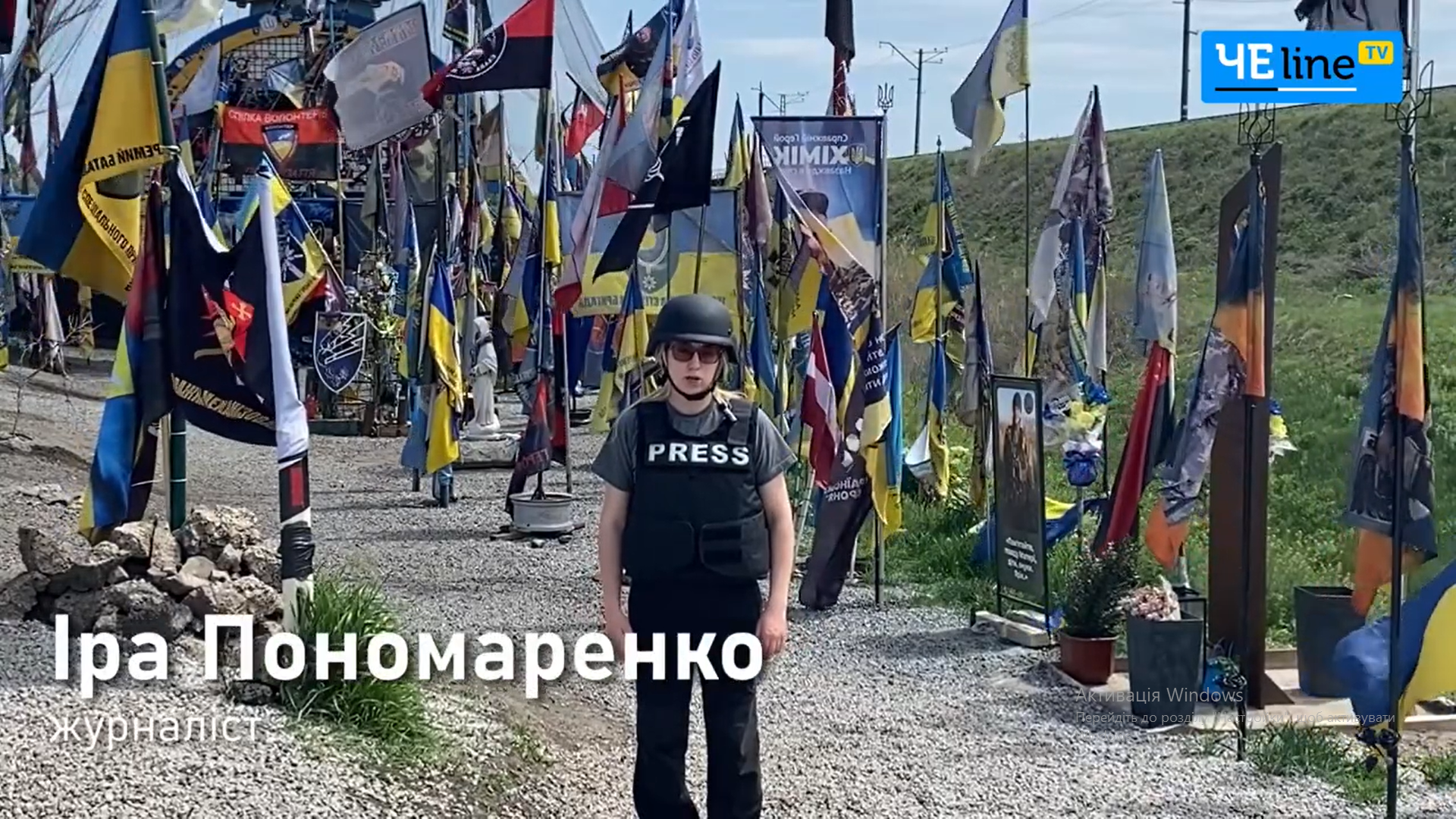
Ira Ponomarenko in safety gear from Mediabaza Chernihiv. Screenshot from Cheline on YouTube by IMI
How to visit the IMI Mediabazas
To use a Mediabaza’s services, message the hub’s coordinator on Facebook:
- Mediabaza Khmelnytskyi – Olha Zahoruiko;
- Mediabaza Cherkasy– Yeliena Shchepak;
- Mediabaza Zhytomyr – Oksana Trokoz;
- Mediabaza Chernihiv – Pavlo Pushchenko;
- Mediabaza Kharkiv – Olha Kaplun;
- Mediabaza Poltava – Nadia Kucher;
- Mediabaza Dnipro – Kateryna Lysiuk;
- Mediabaza Zaporizhzhia – Natalia Vyhovska;
- Mediabaza Kropyvnytskyi – Pavlo Lisnychenko;
- Mediabaza Mykolaiv – Kateryna Sereda;
- Mediabaza Sumy – Alyona Yatsyna;
- Mediabaza Odesa, Kherson – Serhiy Nikitenko;
- Mediabaza Slovyansk – Valeriy Harmash;
- Mediabaza Chernivtsi – Taisia Harmash.
Please note that:
- in Kherson, the Mediabaza only issues equipment;
- in Slovyansk, you can use the Mediabaza equipment to film and broadcast video and audio materials;
- in Chernivtsi, you can record podcasts at the Mediabaza.
If necessary, you can contact the national Mediabaza coordinator Pavlo Lisnychenko by:
- calling 050 594 20 58
- or writing to [email protected].
If you need safety gear (bulletproof vest, helmet, first aid kit) or some other equipment, contact the coordinator in your region or fill in this Google form.
by Kateryna Andriychuk, Mediabaza network communications manager

